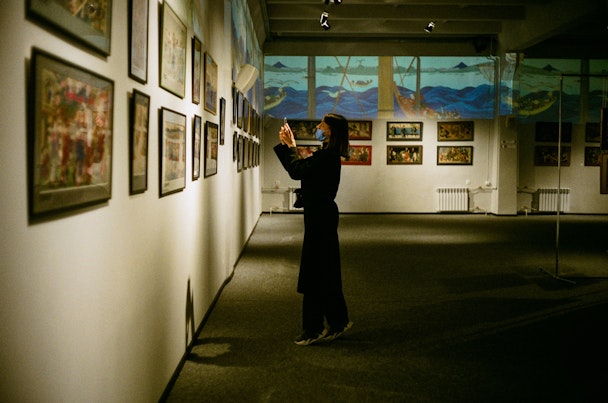Why crediting artists matters now more than ever
It’s a modern problem: seeing your content go viral under someone else’s name. Grace Hebditch of animation house Blue Zoo reflects on a time it happened to them, and why credit matters now more than ever.

Artists have it harder than everyone else, says Blue Zoo's Grace Hebditch / Tanya Pro
Between artificial intelligence (AI)-generated artwork and non-fungible tokens (NFTs), now more than ever, the topic of properly crediting artists is a hot and controversial one.
Sharing art without crediting the original artist, or ‘reposting’, is nothing new. The internet is rife with talented people’s work with no one’s name (or worse, someone else’s) on it. In a perfect world, everyone would be clearly cited, but the reality is that credits are missed for many different reasons. Therefore, on the wild west of the internet, a lot of work will float around without the proper credit to the creators.
Advertisement
It’s something we learned first-hand after producing a short animation in portrait dimension, as popularized by Tik Tok and now favored by algorithms on YouTube and Instagram. Born from an in-house brief – the single word ‘puberty’ and a goal to combine 2D and 3D animation creatively – this short film was made by Blue Zoo artists and interns, entirely remotely.
‘In Shapes’ is an emotive and poignant mixed-media animation exploring the insecurities of a girl at the swimming pool. It was the first film directed by French animation director Zoé Risser. Created in portrait for social media, the aim of the film is to empower young people who feel insecure about their appearance.
The film depicts a young girl wearing a swimsuit at a swimming pool, surrounded by jeering boys and confident girls, and experiencing body dysmorphia. Inspired by a body-confident girl who is also at the pool, the protagonist learns to embrace her inner and outer beauty.
Advertisement
#BodyPositivity
The body positivity movement aims to challenge societal expectations of health and beauty. In a world with narrow perceptions of beauty, the body positivity movement has universal relatability and huge popularity. Back in 2020, the hashtag #BodyPositivity was home to over 13m social media posts.
Our film’s popularity has led to numerous reshares and ‘reposts’ by accounts without permission and without crediting the original creators across social platforms like Instagram, YouTube, and, of course, TikTok, where the film became a viral sensation. One reshare on YouTube racked up a staggering 85m views.
Suggested newsletters for you
The body positivity movement promotes rejecting unhealthy habits to maintain a certain size, building self-esteem and taking care of your body instead. A very positive message, right? Isn’t it great this film is reaching people who might need this message?
Of course. However, shouldn’t the people who ideated the concept, who spent hours honing the message, and who produced something so beautiful, enjoy the credit they deserve?
In the world of social media, art appears for a few seconds and disappears forever from people’s feeds. Artists arguably have it harder than ever to stand out from the crowd.
Credit where credit is due
For us, the answer was to contact as many of the people who had shared the film as possible and simply ask to be credited. The decision was made to not enforce this by reporting or taking down ‘reposted’ versions, but to hope the film would reach even further and help spread the positive message.
In January 1996, Bill Gates wrote an essay titled ‘Content is King’. He said, “Content is where I expect much of the real money will be made on the internet, just as it was in broadcasting.” He was right, and there is a sea of uncredited content now. Anyone can click a button and create content, but that will never replicate producing something that resonates as transparent, human storytelling.
This film came from a very personal place for its director, Zoé Risser. The authenticity of this message came across to many people who have seen this film.
Among so much talk of AI-enabled creativity, the one thing AI can’t do is interpret lived experiences that resonate strongly with audiences and cause virality. Content is indeed king, regardless of who is credited with making it. In a world where AI may well take over, crediting will sadly be less prioritized. But craft by creator-driven studios will be more important than ever.
Content by The Drum Network member:

Blue Zoo Animation Studio
Blue Zoo Animation Studio is a multi-BAFTA and Emmy-winning production company that has grown to become one of the UK’s leading & largest animation studios,...
Find out more
